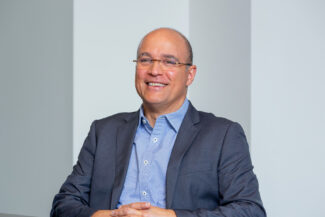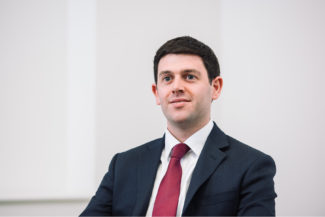Blizzard v Bossland: An account of profits judgment for licensing video game ‘cheats and bots’ software
08.07.2019
Blizzard Entertainment SAS & Anr v Bossland GmbH & Ors [2019] EWHC 1665 (Ch)
On Thursday 4 July, the High Court handed down its account of profits judgment for the Blizzard v Bossland ‘battle of the bots’ case. The judgment will be of interest to any party contemplating electing for an account of profits over an inquiry as to damages, but is of particular interest as the first account of profits case which relates to a global software business, in this instance, in the online gaming context. The judgment considers where to draw the line between ‘direct costs’ and ‘general overheads’ for the purpose of calculating a final account of profits figure.
A case summary is set out below and a link to the judgment can be found here.
Background
Our claimant client, Blizzard Entertainment, publishes video games such as World of Warcraft, Diablo and Overwatch.
The defendant, Bossland, produces ‘cheats’ and ‘bots’ software which is licensed to players of Blizzard’s video games to cheat in the games, for example by allowing players to see through walls, or to allow ‘bots’ to control their characters and automate aspects of their actions, such as collecting materials for later use by players.
The use of ‘cheats’ and ‘bots’ in Blizzard’s video games is against the terms of the end user licence agreement which players must agree to in order to play Blizzard’s games. As a result, using ‘cheats’ and ‘bots’ also takes players outside of the copyright licence granted to them by Blizzard to play their games. Consequently, Blizzard brought proceedings in which it alleged that Bossland’s licensing and promotion of its ‘cheats’ and ‘bots’ software to UK customers had induced those players to breach their end user licence agreement with Blizzard and also amounted to authorising copyright infringement and acting in common design with its UK players to infringe Blizzard’s copyright.
In 2017, Bossland admitted liability in the UK proceedings. Blizzard elected to pursue an account of the profits which Bossland had made from their infringing acts in the United Kingdom. The High Court’s judgment, which was handed down on 4 July 2019, sets out the sums which Bossland must account to Blizzard for following the profits made from its infringements.
It should be noted at the outset that Bossland’s business was (during the relevant period) almost exclusively the production and licensing of cheats and bots for Blizzard games. Therefore, it was not necessary for the Court to carve out Bossland’s infringing acts/software products from its non-infringing acts/software products. However, it was necessary for the Court to differentiate between Bossland’s UK business (which was the subject of the proceedings and where Bossland had accepted liability) and the rest of the world (where it had not and which were not part of the UK proceedings). This was done by expert analysis of the underlying figures for the revenue generated by UK licence sales only and calculating the total for the relevant period.
Key points from the judgment
The purpose of an account of profits is not to penalise the infringing party but instead to ensure that it provides all of the profit it made from its infringing acts in the relevant period to the injured party. The infringing party should not be unjustly enriched by its infringing conduct but it must also not be penalised.
The approach of the English courts to assessing the profit made from IP infringing activity is to take the gross profits that relate specifically to the infringing acts, and then deduct any costs that are wholly and solely attributable to those infringing acts (‘direct costs’). In addition, a deduction can also be made for a proportion of costs that are associated more broadly with the infringing acts and other non-infringing conduct (‘general overheads’)i. However, general overheads cannot be deducted if:
- those general overheads would have been incurred in any event even if there had been no infringing activity; and
- the sale of infringing products would not have been replaced by the sale of non-infringing products ii.
In this case, Bossland operated as a global software company whose costs were not directly associated with particular jurisdictions. Following expert analysis of the underlying figures, the total revenue generated by UK licence sales for the relevant period was calculated. From this figure it was determined that only 3.6% of Bossland’s global revenue was generated from sales to UK licensees.
‘Direct costs’, which can be deducted from this UK revenue were found to be those costs that are wholly and solely attributable to the infringing acts. In this case, for example, transaction costs incurred in relation to each individual purchase by a licensee of a software licence were considered ‘direct costs’. However, the Court made clear that it is not always necessary for ‘direct costs’ to incrementally increase with every sale. Instead, costs that are solely and wholly associated with the production of an infringing product could also be deducted. The example used in the proceedings was a mould used solely to manufacture an infringing product that wears out with time and eventually breaks. Whilst there is no increasing incremental cost directly attributable to individual sales that is associated with the wear of the mould, eventually the mould will break and the cost of that mould will be solely and wholly associated with the infringing acts. Such a cost, if available, is deductible.
‘General overheads’ of Bossland’s business were defined as all other costs incurred which were not solely and wholly attributable to the infringing conduct in the UK, e.g. its server costs, software costs and employee costs which related to both infringing business in the UK and the sales it had made of the same software but to customers based elsewhere in the world. Pursuant to the fact that only 3.6% of Bossland’s business was directed to the UK, the Court considered that all of these general overhead costs would have been incurred by Bossland in its worldwide operations even in the event that it had not sold its software licences in the UK (see (a) above). Secondly, the Court found that Bossland did not have other non-infringing products that it would have licensed in place of of its infringing products (see (b) above). Consequently, no proportion of these general overheads was deductible.
The final position was that the majority of the costs incurred by Bossland could not be deducted from the profits made from its infringing acts. This was either because they were not ‘direct costs’ wholly and solely attributable to the acts of infringement in the UK, or because they were ‘general overheads’ that would have been incurred by Bossland in any event even if the infringements had not occurred and Bossland did not have non-infringing products with which it could replace its infringing products.
i Dart Industries Inc. v Décor Corp Pty Ltd [1994] FSR 567; Hollister Inc. v Medic Ostomy Supplies Ltd [2013] FSR 24; and OOO Abbott v Design and Display Ltd [2016] EWCA Civ 95.
ii OOO Abbott v Design and Display Ltd [2017] EWHC 932 (IPEC).

Mark Brown
Author

Sean Ibbetson
Author

Charles Purdie
Author
